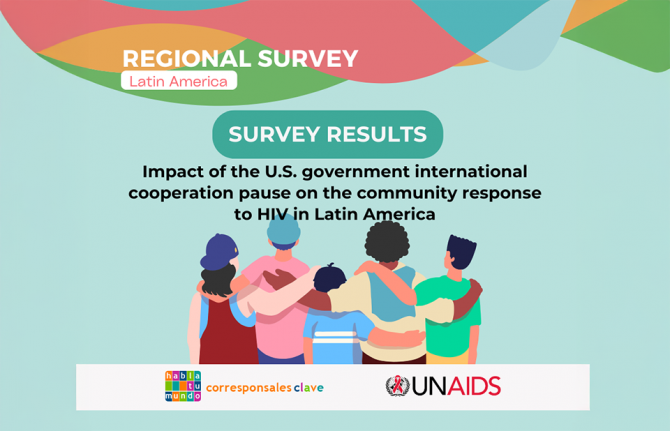
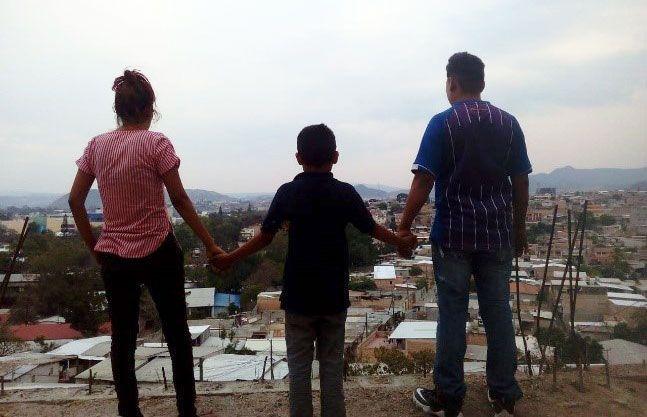
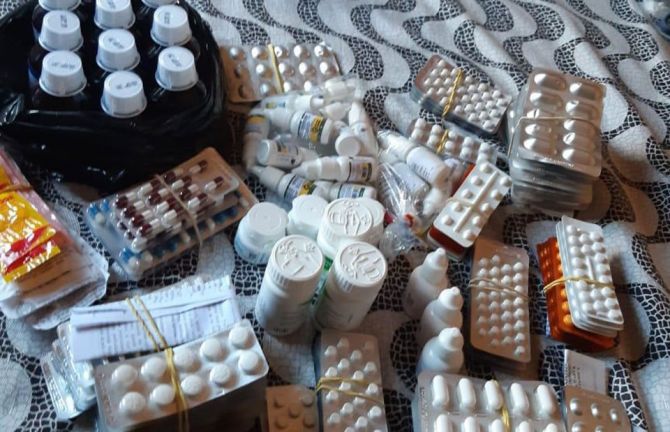
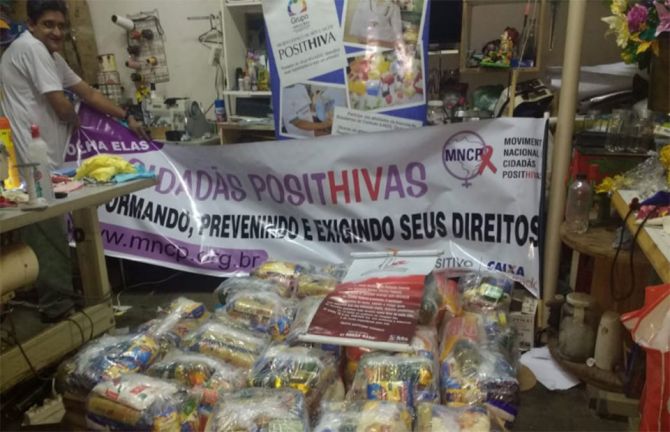
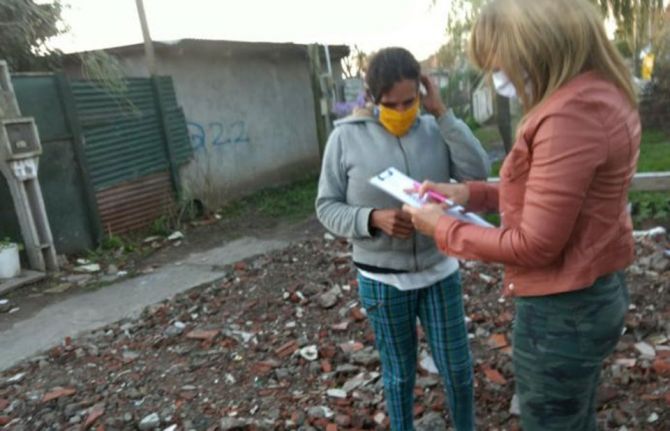
Feature Story
“My biggest concern is to get my antiretroviral medicines”: HIV and COVID-19 in Latin America
28 May 2020
28 May 2020 28 May 2020Since the start of the COVID-19 pandemic, Marcela Alcina, of the Latin American and the Caribbean Movement of Positive Women (MLCM+), has received more than 20 calls a day asking for help, either for food, medicine or advice on how to cope with the lockdown.
Yesenia Rodriguez (not her real name) made one of those calls. A Colombian by birth, she lived for more than 24 years in the Bolivarian Republic of Venezuela, but owing to the humanitarian crisis in that country, she had to return to Cali, Colombia, six months ago to access her treatment for HIV.
“There’s eight of us: my four children, my husband, my two grandchildren and me,” she said.
Ms Rodriguez does not have a job and needs help to feed her family and to access antiretroviral medicine. “I came back to Cali only to find myself living another crisis. My biggest concern is to get my antiretroviral medicines, but I don’t have access to health care in Colombia,” she said. “It’s been extremely tough for me and my partner, since we’re both living with HIV. My children and my husband are unemployed. Kids can’t put up with hunger the way we grown-ups do.”
Ms Rodriguez was put in contact with Yani Valencia of the Lila Mujeres Organization, part of the MLCM+ network. She was given a food package for her and her family, and she is being put in contact with someone who is able to ensure that she can access antiretroviral therapy. “I was about to pass out when they brought me these groceries, I was extremely happy.”
UNAIDS is recommending that, especially during the COVID-19 pandemic, people living with HIV keep necessary medical supplies on hand. The World Health Organization HIV treatment guidelines now recommend multimonth dispensing of three months or more of HIV medicines for most people at routine visits. However, according to a recent survey carried out by UNAIDS in Latin America and the Caribbean on the community needs of people living with HIV in the context of the COVID-19 pandemic, only one in 10 people reported having a three-month supply of antiretroviral therapy.
“We have met people who have no access to health care. A colleague of ours in Colombia borrowed a neighbour’s motorcycle to distribute medicines. We notice communities are overlooked quite often, but we must be a part of the answer. We couldn’t wait any longer, we had to do something,” said Ms Alcina.
Communities have played and continue to play a fundamental role in the AIDS response at the local, national and international levels. And now communities are playing a major role in the fight against COVID-19. MLCM+ has developed a network of 850 volunteers working in 17 countries in the region whose aim is to spread solidarity during the COVID-19 pandemic, keeping the focus on people living with HIV.
“We are distributing food and cleaning products, we are making masks that will later be distributed along with antiretroviral therapy, we are teaching people some prevention methods, we are giving condoms away and helping people find shelter in domestic violence situations,” said Ms Alcina.
MLCM+ is working across the region with UNAIDS, UN Women, the United Nations Population Fund and the United Nations Educational, Scientific and Cultural Organization, all of which are offering technical or financial support.
“UNAIDS provides us with resources, specialists and training webinars. The United Nations Educational, Scientific and Cultural Organization, on the other hand, helps us financially. That way, we are putting together a mechanism that intends to support the government’s actions, not replace them,” said Ms Alcina.
“We see how inequalities have become more evident during the COVID-19 pandemic. Inequality, and especially gender inequality, is exacerbated in times of crisis. Women living with HIV must be in the centre of the responses to both HIV and COVID-19, and must not be left behind,” said César Núñez, Director of the UNAIDS Regional Support Team for Latin America and the Caribbean.



